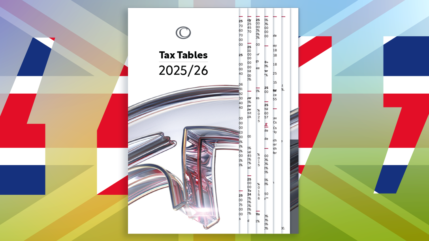The Office for Budget Responsibility (OBR) expects the number of estates subject to Inheritance Tax to more than double from pre-pandemic levels, from 20,000 in 2018 to almost 50,000 by 2026. On the back of rising inflation, rocketing house prices and a freeze in the annual allowance until 2026, the OBR has revised up its March 2021 predictions for how much it expects Inheritance Tax (IHT) to raise. Figures published alongside last week’s Budget show that between 2020 and 2026 it now expects the tax raised from IHT to be £2.7bn higher than its previous prediction.
For those planning to pass on their wealth to the family or other beneficiaries, the prospect of a 40% tax bill on their estate is an unwelcome one. However, with careful inheritance tax planning there are ways for people to reduce or potentially even eliminate this tax burden.
Since the Pension Freedoms Legislation became law in 2015, one developing area of Inheritance Tax planning has been pensions – specifically Defined Contribution and private occupational DC pensions.
The good news for anyone wishing to pass on as much of their wealth as possible, perhaps to their family or other beneficiaries, is that as a result of these new freedoms and flexibilities, transferring a DC or private pension is considerably more attractive than in the past.
For many, of course taking a pension and drawing income from it is the right option, particularly where there are no other sources of income.
However, for people who have other sources of capital or income, such as rental income, ISAs, cash savings, dividends or a DB (final salary pension), it might be worthwhile considering whether to delay drawing income from their DC pension. Furthermore, if financial circumstances allow, they might even consider not taking income from it at all.
Reasons why this could be beneficial
Pension savings within most modern DC and private pensions usually fall outside an individual’s taxable estate, which means their beneficiaries aren’t subject to the 40% Inheritance Tax rate on it. In contrast, most other assets fall within someone’s estate, making the estate liable for Inheritance Tax.
Even when tax is liable on income from rent, dividends and on gains from the sales of other assets, the tax rates are often lower than the 40% IHT tax rate.
Rather than drawing an income from your pension, which depletes the capital, leaving as much of your pension invested as possible allows it to continue to grow. This is turn increases the amount your estate will receive. That said, it’s important not to allow the value of your pension fund to go above the lifetime allowance of £1,073,100, without the relevant planning, analysis and pension protections, if appropriate. This figure has been frozen until April 2026.
Exceptions
Although generally speaking most modern flexible pensions fall outside a person’s taxable estate and can be transferred free of Inheritance Tax to their family or other beneficiaries, this is not always the case. Especially if your pension is an older style pension, it’s worth checking whether it’s outside your estate for IHT. Your pension provider should be able to provide you with this information. If not, you may wish to consider transferring to a pension that provides this as one of its death benefits. If you are considering this, or any other of the issues raised in this article, please contact your Courtiers Private Client Adviser prior to making any firm decisions.
Another exception to the general rule, is where the member of a pension scheme has taken their Pension Commencement Lump-Sum that is still unused, i.e. sat in your bank account or held in another investment. This will count as part of the estate, making any beneficiaries subject to IHT.
Another situation where IHT may be payable is where the pension scheme member retains control over who receives the pension’s death benefits, in which case these will be included in their estate. The technical term for this is ‘under direction’.
Although savings held in flexible pensions usually fall outside someone’s estate for IHT purposes, this doesn’t necessarily mean that your beneficiaries won’t pay any tax. This will depend on the age at which you die. If it’s before you reach the age of 75, the death benefits will normally be free of income tax. However, if you die after the age of 75, your beneficiaries may have to pay income tax on any money they draw from the pension.
Some other circumstances where IHT may be due
- If in the two years before death, a pension member knows they are ill and have substantially increased their pension contribution
- When someone transfers from a DB or occupational DC scheme, knowing they are terminally ill and death occurs within two years.
The underlying principle behind the rules on the IHT implications of transferring a flexible DC or private pension to someone else is that no IHT is payable by an estate if the pension scheme member expects to receive the pension’s death benefits. If this is the case, there is no transfer of value, and an estate should not expect to pay IHT when the pension is transferred.
Conclusion
Transferring DC and private pensions to your beneficiaries can be an extremely tax-efficient way of passing on your wealth. If you have a DC or private pension and would like to find out whether this might be appropriate for you and your family, please speak to your Courtiers Private Client Adviser.













